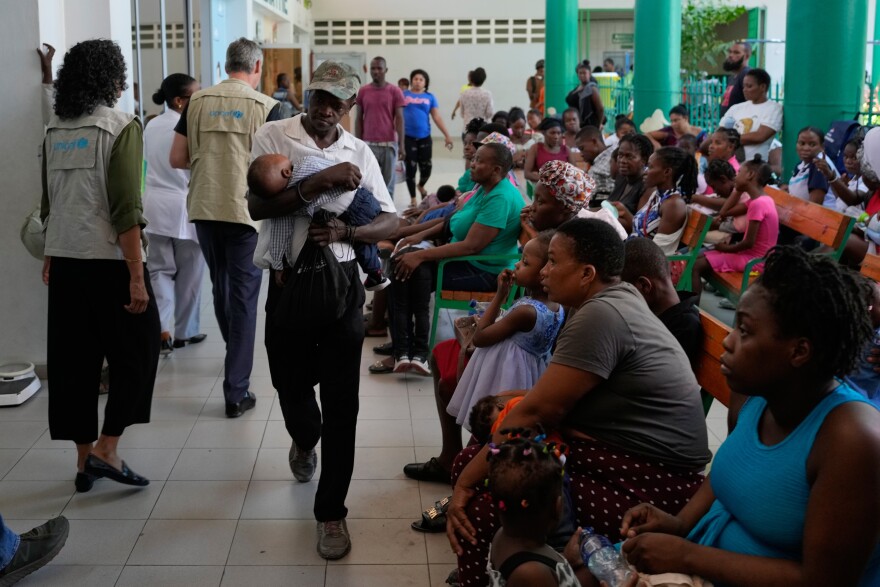A renewed surge of cholera in Haiti is raising urgent concerns about the country's decaying water and sanitation systems, Human Rights Watch reported Wednesday.
The outbreak, tied to the rainy season, is spreading throughout and around the capital, Port-au-Prince, as its health infrastructure nears collapse and insecurity escalates.
From Jan. 1 to Oct. 30, Haitian health authorities recorded 2,852 suspected cholera cases, 186 confirmed cases and 48 deaths.
Government data indicate that over a third of the suspected cases are in children under 9. The resurgence follows an 11-week period where no new cases were reported.
Nathalye Cotrino, senior Americas researcher at Human Rights Watch, blamed the lack of basic necessities for driving the crisis.
"Cholera is once again threatening thousands of lives in Haiti because people lack access to the most basic services: clean water, sanitation and medical care," Cotrino said in a statement.
She said Haitians need "serious government and international efforts to address the outbreak and avoid more preventable deaths."
The current outbreak marks a painful continuation of a struggle that began in 2010 when the country's first cholera epidemic was traced back to sewage negligently released from a United Nations peacekeeping base, ultimately causing about 9,800 deaths.
Persistent gaps in sanitation, clean water access and emergency preparedness continue to expose the population to renewed outbreaks.
According to the UN, only 25 percent of Haitian households have access to adequate handwashing facilities, and 70 percent lack access to an improved sanitation system.
"Stagnant water, broken sewage lines, and the accumulation of trash across the city create ideal conditions for outbreaks to spread whenever the rains come," Diana Manilla Arroyo, head of Mission in Haiti for Médecins Sans Frontières, told Human Rights Watch.
Arroyo said much of the Caribbean country's infrastructure was destroyed in the 2010 earthquake.
Extreme insecurity is further exacerbating the cholera spread, says Human Rights Watch, noting that criminal groups have expanded control, blocking roads, restricting humanitarian access and isolating vulnerable communities.
Violence has displaced over 1.4 million people this year — the highest number recorded — forcing many into overcrowded informal settlements with virtually no access to clean water or sanitation, placing them at serious risk.
For those who fall ill, accessing health care is severely restricted. The UN reports that only 11% of health facilities with inpatient capacity in the capital remain fully operational. Residents in gang-controlled areas like Cité Soleil and lower Delmas face severe movement restrictions and cannot afford private health care, unlike those in safer, more affluent neighborhoods.
The latest outbreak has even reached Pétion-Ville, a traditionally more secure area that houses most UN and diplomatic offices.
Human Rights Watch called on Haiti's transitional government, with international support, to urgently repair the water and sewage network, guarantee safe humanitarian access to high-risk areas, and restore the operational capacity of public health institutions.
The organization also criticized foreign governments for continuing mass deportations. More than 225,000 people were deported to Haiti between January and October by countries including the Dominican Republic, United States, Bahamas, and Turks and Caicos.
Human Rights Watch argued that people should not be returned to Haiti, where "overlapping humanitarian, security and public health crises endanger lives, and where they face a high risk of violence with no effective access to protection or justice."
Copyright 2025 WLRN



